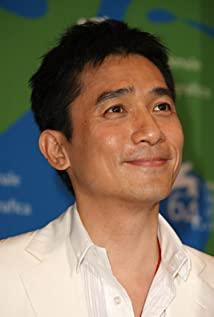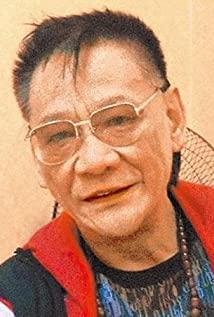The model of the ending work not only promotes the plot but also fills in the foreshadowing of the first two works. The whole film uses a large number of flashbacks: Chen Yongren's death in the line of duty is used as a narration point in time to make the whole story more reasonable, complete and three-dimensional. The following is to sort out my personal understanding according to the demarcation point of time: Before Chen Yongren's death in office, on the one hand, he echoed the first two films by interspersing the plot of Chen Yongren's work after becoming Han Chen's subordinate; The psychological report supplements the experience of Chen Yongren. I told the audience about the relationship between Li Xiner, Chen Yongren, Yang Jinrong, Shen Cheng, and Han Chen. After Chen Yongren died in the line of duty, through the main storyline of Liu Jianming and Yang Jinrong, Li Xiner, Shen Cheng's contact and the sub-plot of Chen Jun's suicide to describe how Liu Jianming produced mental hallucinations step by step under the plans of the other three (there are other reasons), Expose his undercover identity and eventually fall into the so-called "infernal hell". One of the ways to make a movie's plot more complex and exciting is to add new characters. This one has successfully added a story related to Han Chen and Chen Yongren by adding two main characters, Yang Jinrong and Shen Cheng. The plot is not only not obtrusive, but also more three-dimensional and vivid, which I think is a very outstanding point of the movie. (Of course, there are many other wonderful places in the movie)
Throughout the "Infernal Affairs" trilogy, the two words that run through are "I want to be a good person" and "I always have to pay back when I come out to mix." These two sentences seem to correspond to the two protagonists, one from the police. An undercover gangster, an undercover police officer from a gang, but it is this stark contrast that adds a sense of ambiguity to the film, which makes people wonder what the line between "good guys" and "bad guys" is. In the play, this boundary is reflected in many places, such as the location of the shot (gangster shooting is a headshot, while a policeman is a leg kick), the way the word "dart" is written, and so on. In the whole series, we can see that Liu Jianming, who is a "bad guy", wants to be a "good guy" because of his original desire for a sense of justice in his heart, but he has never been able to truly be a "good guy". I'm sorry, I'm a policeman" justice, but in order to hide himself deeper and deeper, he eventually had a mental hallucination. In fact, when he became an undercover agent and entered the police academy, this kind of "I want to change with him" between good people and bad people couldn't be changed. But in real life, we can "change". In terms of the Buddhist thought that runs through the movie, each of us has a good side and an evil side, and we can choose the good and evil in our hearts. Whether we can truly stick to our inner justice and become a real "good person", or whether to do whatever we can for something and fall into the endless hell, this is the choice each of us should make, and it is also the place where the movie arouses my deep thinking.
View more about Infernal Affairs III reviews











